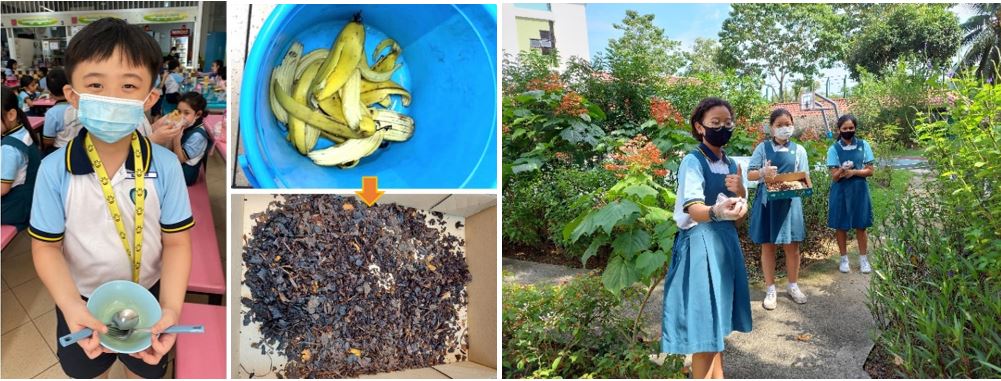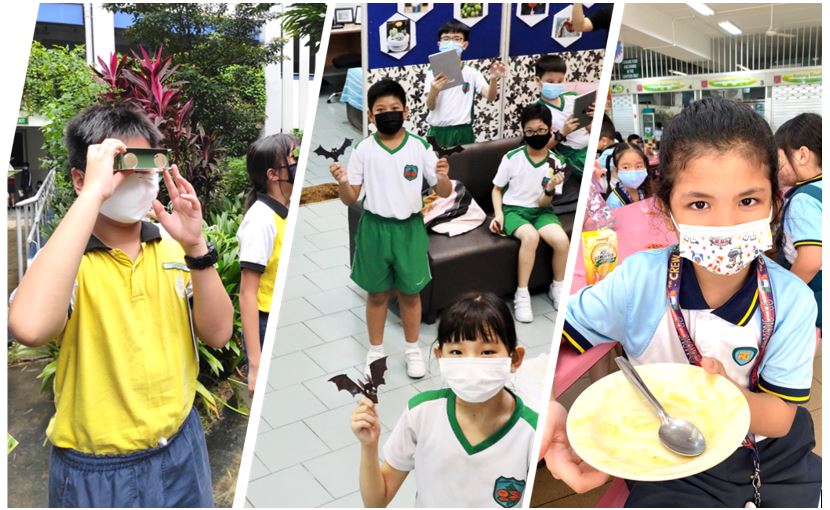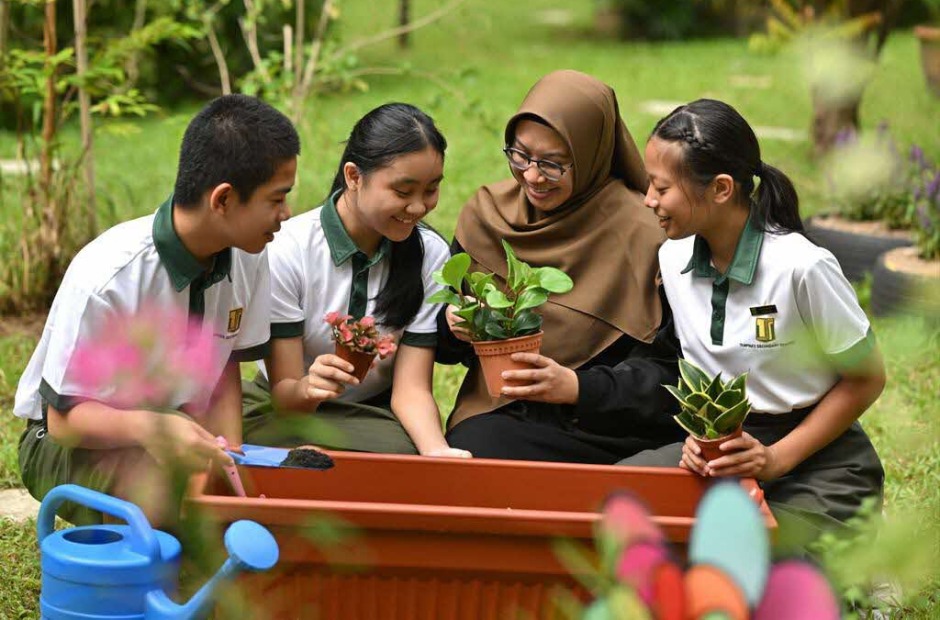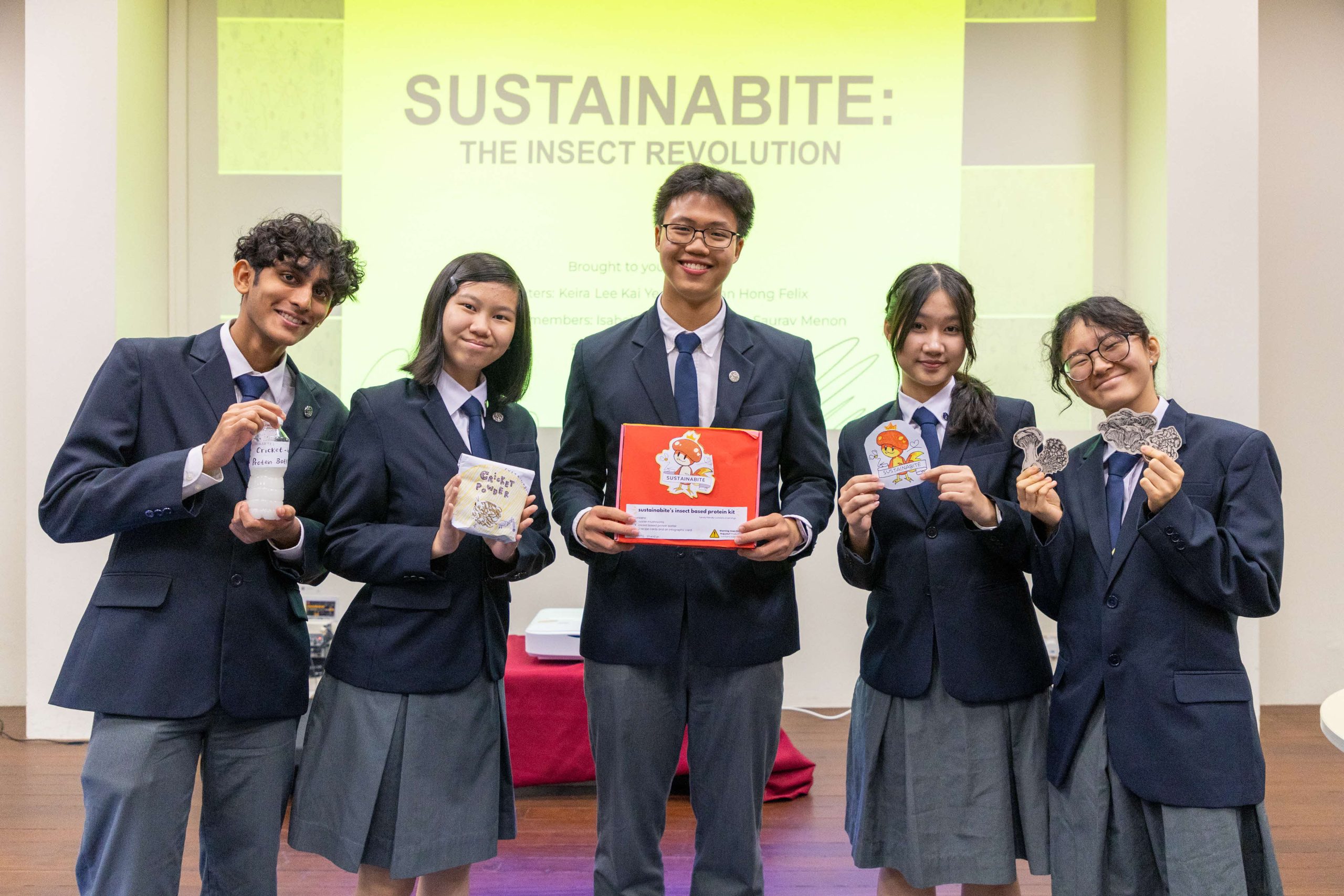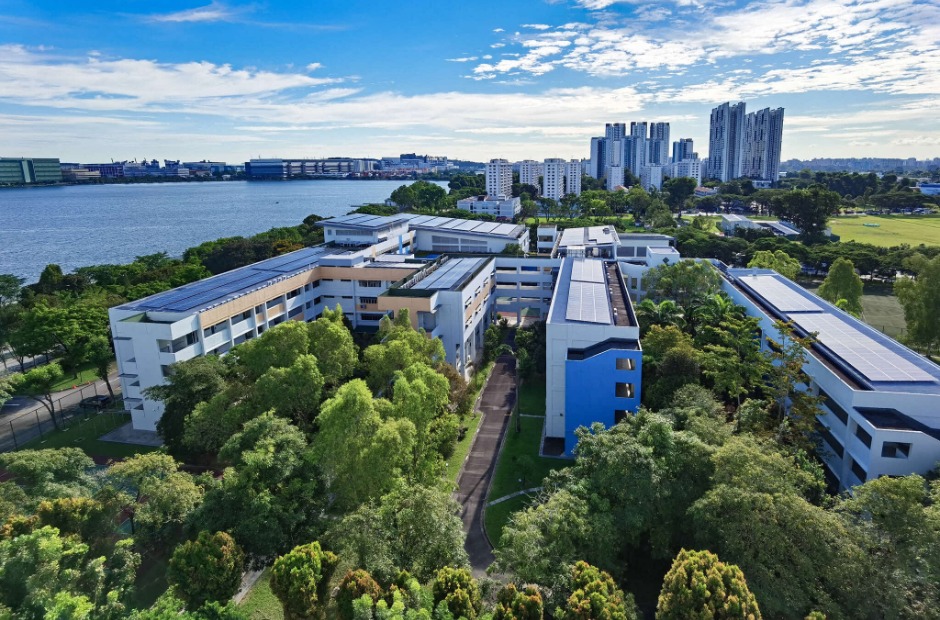Whether it is in Science class, Values-in-Action projects, school events or CCA, students in Singapore schools have many opportunities to engage in a variety of environmental issues. With the launch of the Eco Stewardship Programme in March 2021, we will see a greater focus on such programmes to encourage students to practise eco-friendly habits.
Here, three primary schools share about their recent Climate Action Week activities in July and show the possibilities when it comes to environmental education.
Going on an adventure in our backyard
For Climate Action Week, the Primary 5 students of Kuo Chuan Presbyterian Primary School took to the school grounds for their Science lessons. Their challenge? To spot and identify as many wildlife species as they could within the time given.
The HOD for Science, Mr Soo Gham Seng, says, “Many students may not know about the biodiversity we have in Singapore. We want them to be aware of the wildlife that is in their midst and awaken their love for nature. This way, they will better understand why it is so important that we take care of the environment.”
With a set of trusty binoculars, and a field guide on common birds and insects in Singapore, the students explored all parts of the school and recorded their findings – as scientists do. The students also learnt to make use of their other senses to observe their surroundings, for example, trying to recognise bird calls.
By the end of the session, they were proud to have identified several species of birds, butterflies and dragonflies. Some of these sightings also prompted mini-lessons from the accompanying teachers, such as how bees play an important role in the eco-system by pollinating flowers.
Primary 5 student Nicki Chee says, “We can hear the birds, but it is quite tough to spot them. I think the trees may be home to many more animals we can’t see, and we should try to protect them!”
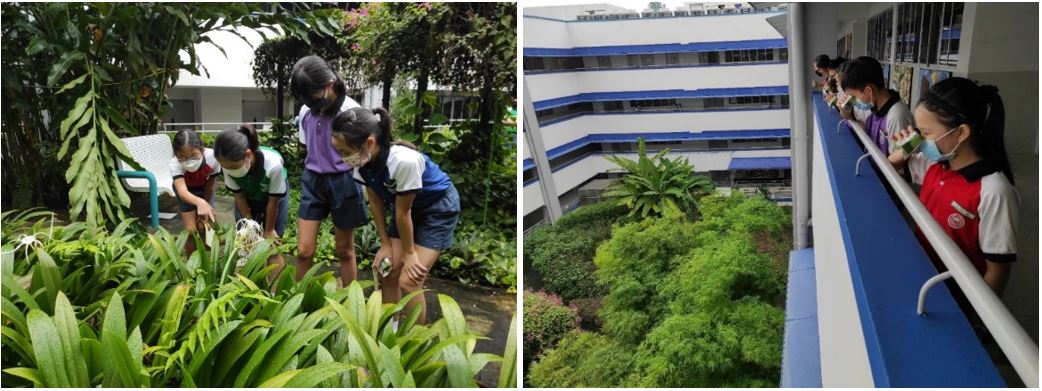
Switching off energy-leeching “vampire appliances”
Compared to wildlife, it may seem a little more challenging to enthuse students about energy efficiency. But at Woodgrove Primary School, the teachers found that with a bit of imagination and technology, switching off devices can become a great deal of fun.
Students already know they should turn off the lights and fans when they are not in use, so for Climate Action Week, the teachers chose to focus on ‘vampire appliances’, a name they give to appliances that continue to draw energy even when they are switched off. To excite the students, the teachers played on the vampire analogy and transformed a classroom into a ‘Vampire Slayer Training Room’.
During recess, the P5 students took turns to visit the room, which was furnished to look like a typical HDB apartment, and hunt for the hidden ‘vampires’ within. By scanning the appliances (such as a printer or television) with an Augmented Reality (AR) application on their tablets, the students learnt about the energy consumed by the devices when in standby mode. They then practised the correct way to stop the ‘vampires’, by switching off the power at the mains and safely unplugging them from the socket.
Through this role-play and interactive approach, teachers hope to create a memorable experience with actionable steps for students to take beyond Climate Action Week.
Teacher in-charge Ms Fatin Suhaila Bte Omar says, “We hope students will be inspired to share their new knowledge about vampire appliances with their family, and take the lead to reduce their energy consumption at home.”
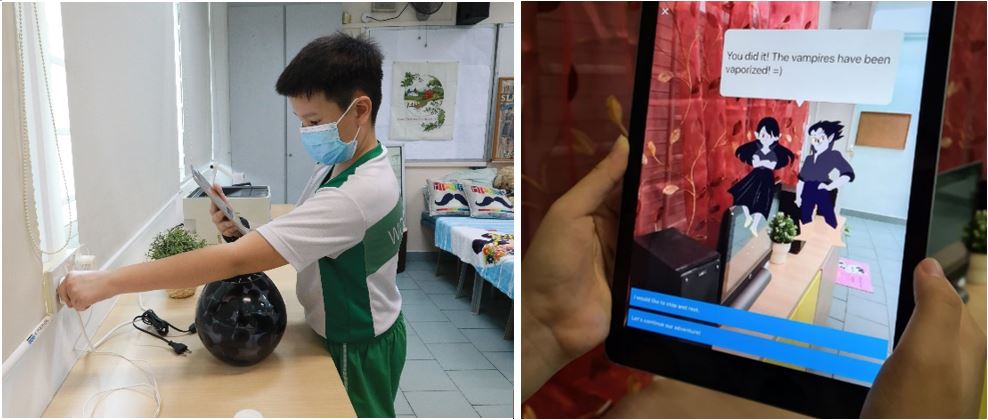
Tackling food waste – one plate at a time
Few things are as personal to us as the food we eat. By choosing to focus on food waste for their Climate Action Week programme, Tampines North Primary School teachers hope to empower their students to exercise responsible choices when it comes to sustainability – starting with what’s on their plates.
As part of the ‘TNPS Love Our Food’ campaign, students learnt about the effort that goes into growing and preparing the food that they eat. They pledged to buy only what they can eat and finish everything that is on their plate.
The best part of this campaign is that the follow-up is immediate and visible. During recess, students show off their squeaky clean plates and lunchboxes after their meals. Teachers also affirm their effort, encourage them to make this a habit.
Besides reducing waste, students also learnt how to ‘upcycle’ food scraps that cannot be eaten – for example, by contributing fruit peel to be made into compost. This was a suggestion by one of the school’s Green Champs, who are class leaders in charge of environmental sustainability. They take turns to collect the fruit peels and deposit them into the school’s electric composter after recess. In just a few hours, the fruit peel transforms into nutrient-rich compost.
To close the loop on the food recycling process, the compost is used in the school gardens where Primary 2 and 4 classes grow and harvest their own vegetables. Seeing the plants thrive with the help of the compost made from their food waste surely drives home the message of sustainability for the students!
